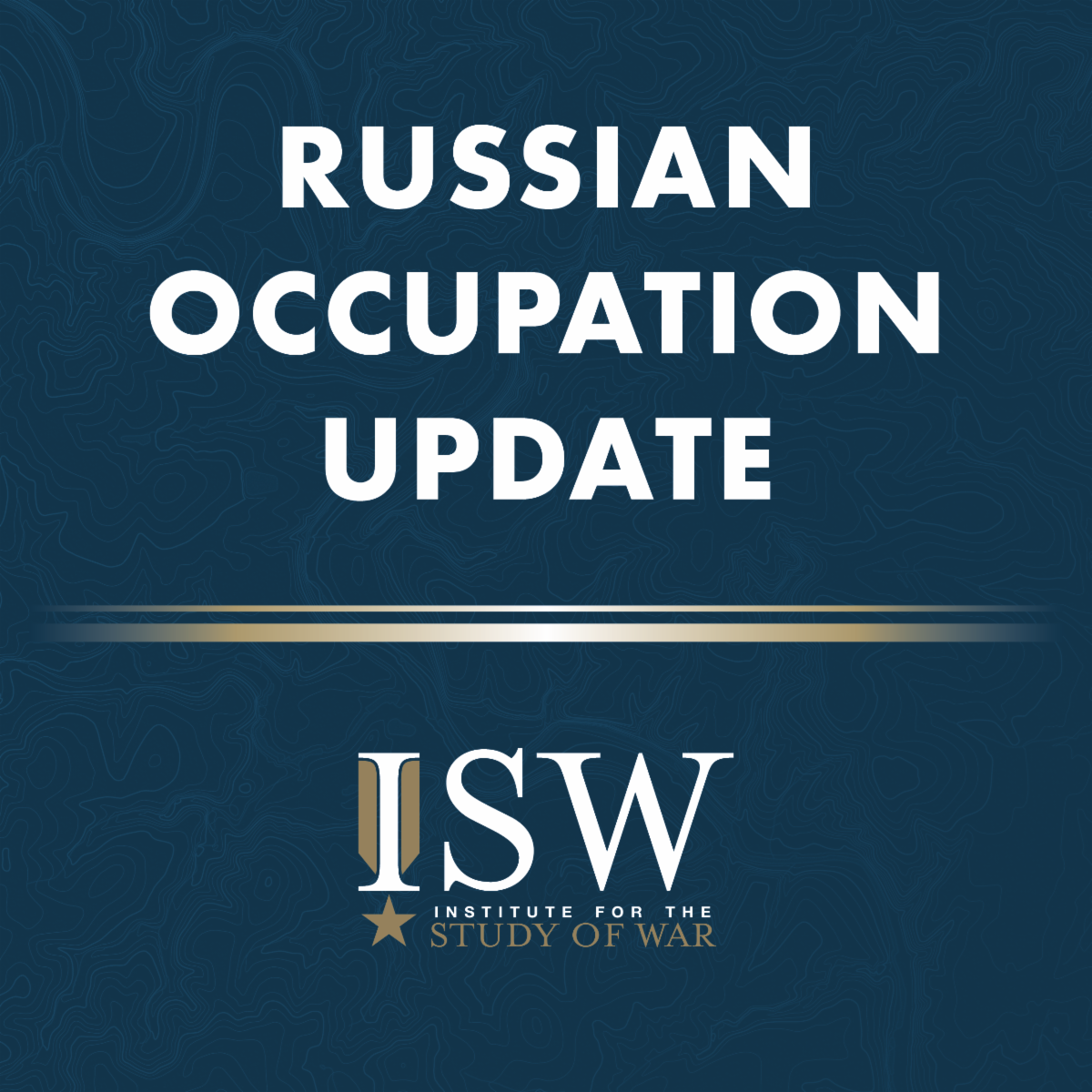Kremlin-appointed Russian Commissioner on Children’s Rights Maria Lvova-Belova tacitly acknowledged that Russia has illegally deported Ukrainian children. Lvova-Belova claimed on June 4 that Russian Presidential Aide Vladimir Medinsky gave her “the list” and that her office has “started working on it,” in reference to the list of hundreds of kidnapped Ukrainian children which Ukrainian officials handed over to Russian officials during negotiations in Istanbul on June 2. Lvova-Belova claimed that efforts to reunify Ukrainian children with family members can only be carried out if a parent or close relative with “appropriate legal grounds” applies for custody of the child, as instructed by Russian President Vladimir Putin. Lvova-Belova also noted that her office has “reunited” 101 children with their families in Ukraine and other countries—around 0.5 percent of the 19,546 children whom the Ukrainian government has confirmed Russia has deported. The actual number of deportations is likely to be much higher, as ISW and others have frequently assessed.
Russian officials have attempted to downplay the scale of Russia’s deportations of Ukrainian children, claiming that the list that the Ukrainian government provided in Istanbul showed “hundreds” as opposed to “thousands” of children. An anonymous Ukrainian source noted to Euronews that Ukraine made the decision to only submit a list of 339 names in order to protect the children out of concerns that Russia may try to further hide them by changing their names or moving them within Russia. Lvova-Belova, however, tacitly admitted that Russia has indeed deported Ukrainian children by stating that she is “working” on returning the children named in the Ukrainian list—acknowledging that there is a population of Ukrainian children living within Russia who must be returned to Ukraine and have guardians in Ukraine, meaning there is no reason for them to be in Russia in the first place. Lvova-Belova’s statements also further confirm the illegality of Russia’s behavior vis-à-vis Ukrainian children. The suggestion that children can only be repatriated upon the appeal of a guardian “with an appropriate legal basis” forgoes the potentially thousands of orphans whom Russia deported from children’s institutions in occupied Ukraine who do not have relatives who know what has happened to them or who can advocate for them in the Russian legal system. Lvova-Belova has herself adopted such a child—an orphan teenager from Mariupol. Russia has also gone to great lengths to change the names and birthplaces of some of the children it has deported, which makes it nearly impossible for potential relatives to identify these children in the first place. Lvova-Belova’s discussion of the list furthermore highlights the fact that Russia is failing to respect its international legal responsibilities as a belligerent occupying power—Russia should have made lists of the identities of each and every one of the Ukrainian children it deported for tracking and accountability purposes, and it clearly has not done so.
Key Takeaways:
- Kremlin-appointed Russian Commissioner on Children’s Rights Maria Lvova-Belova tacitly acknowledged that Russia has illegally deported Ukrainian children. Lvova-Belova’s statements further confirm the illegality of Russia’s behavior vis-à-vis Ukrainian children.
- Russia is consolidating control over occupied Ukraine in the digital sphere.
- Schools in occupied Kherson Oblast are introducing new curricula for the upcoming school year to encourage high birth rates amongst Ukrainian youth and to propagate traditional Russian family values.
- Russian occupation courts continue to weaponize spurious or overblown “high treason” charges to prosecute residents of occupied Crimea for perceived anti-Russian or pro-Ukrainian sentiment.
- The ongoing “Great Russian Word” festival in occupied Crimea highlights Russian efforts to use the Russian language as a tool of sociocultural occupation.
| 




 [ISW] 러시아의 공세 캠페인 평가, 2025년 6월 9일
[ISW] 러시아의 공세 캠페인 평가, 2025년 6월 9일
 [ISW] 러시아의 공세 캠페인 평가, 2025년 6월 8일
[ISW] 러시아의 공세 캠페인 평가, 2025년 6월 8일